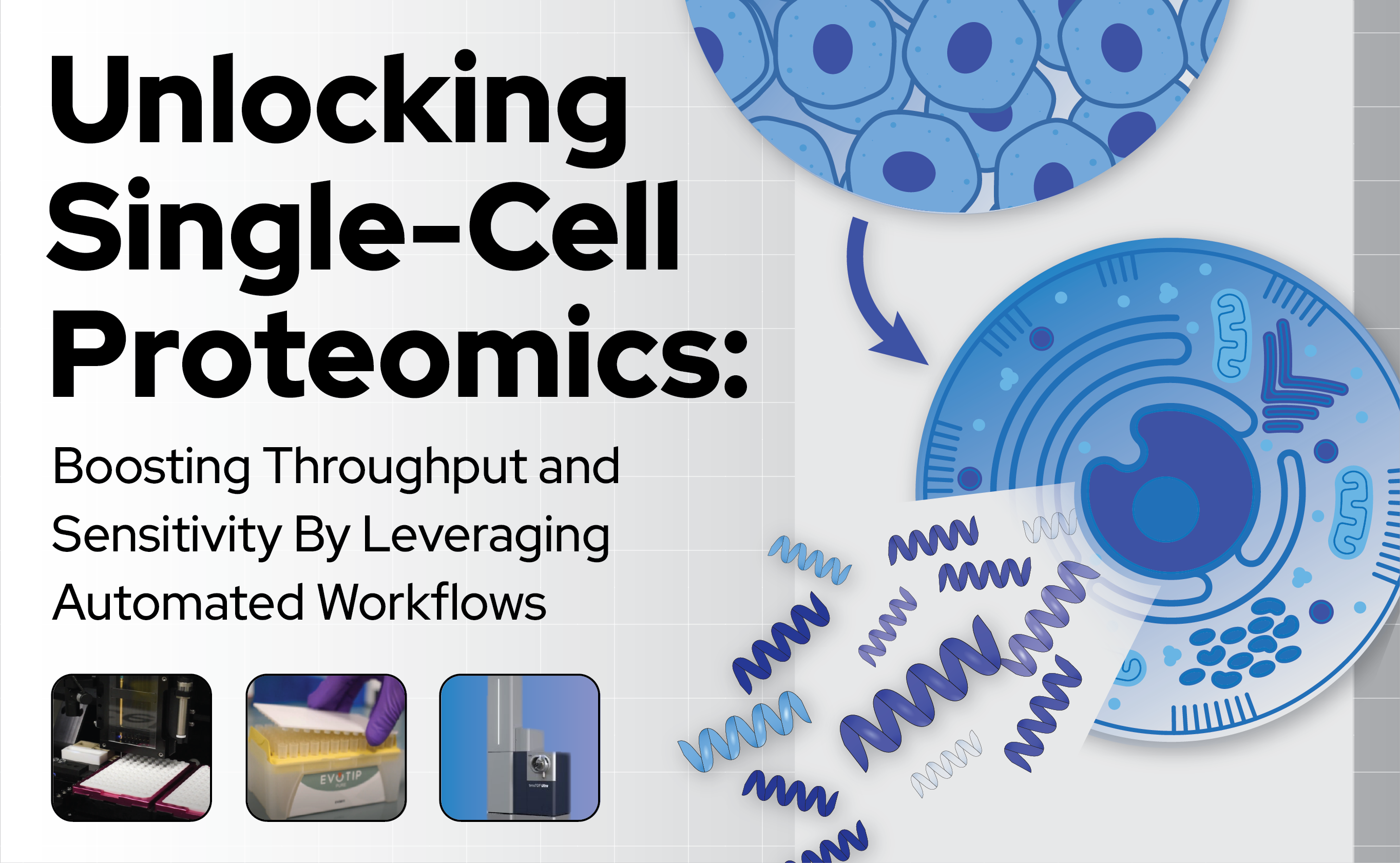Single-cell proteomics (SCP) is enabling researchers to understand cancer progression, immune response, developmental pathways, and more all at the cellular level. Historically, studying proteins at the level of a single cell has represented a considerable challenge for researchers due to low levels of available proteins and the limited sensitivity of mass spectrometry instruments. These hurdles, along with others including ion signal suppression, data acquisition methods, and variations in sample preparation can obfuscate data and limit discoveries.
In response, Dr. Claudia Ctortecka, a postdoctoral researcher from the laboratory of Dr. Steven Carr at the Broad Institute of MIT and Harvard has developed the proteoCHIP EVO 96, which is poised to bridge the gap. The proteoCHIP EVO 96 workflow, recently published in Nature Communications, relies on several cutting-edge technologies to automate key steps in SCP sample preparation and analysis with hopes of improving reproducibility, reducing variability, and increasing throughput.
 ProteoCHIP EVO 96
ProteoCHIP EVO 96
The proteoCHIP EVO 96 itself is a micromachined PTFE (polytetrafluoroethylene) chip specifically designed to combat protein loss. Traditional workflows involve transferring samples between containers multiple times which can result in losses as proteins adsorb to the walls of each container.
This workflow was designed such that proteins remain within the same nanowells throughout the entire preparation process by employing a ‘one-pot’ sample preparation method. All sample preparation steps, including cell lysis, protein digestion, and peptide cleanup, are conducted in the same nanowell with minimal user-guided operations.
CellenONE
The one-pot method is enabled by cellenONE, an automated dispensing robot responsible for populating the 96 nanowells of the proteoCHIP EVO96. It delivers individual cells, dispenses reagents, manages the addition of detergents for cell lysis and proteases for protein digestion, and ensures consistent hydration and mixing throughout the entire process.
After the peptides are processed in the proteoCHIP EVO 96, the samples can be directly transferred into disposable trap columns for liquid chromatography via centrifugation, allowing for transfer with no manual steps. The group found that introducing just one manual sample transfer step at this stage of the workflow (manually pipetting samples from nanowells to disposable trap columns) reduces total protein identifications by up to 29%.
Bruker timsTOF Ultra
After chromatographic separation, prepared samples are analyzed by the timsTOF Ultra mass spectrometer, equipped with Trapped Ion Mobility Spectrometry (TIMS) technology. TIMS separates ions based on their size and shape before they reach the mass analyzer, which increases the overall ion utilization and enhances the detection of low-abundance proteins.
In addition to TIMS, the timsTOF Ultra employs Data-Independent Acquisition (DIA), which overcomes the limitations of the more common Data-Dependent Acquisition (DDA). While DDA can miss lower-abundance proteins due to the stochastic selection of precursor ions, DIA ensures that all ions within a predefined mass range are fragmented and analyzed in each cycle.
On the significance of this effort, Dr. Ctortecka commented, "our new single cell proteomics workflow using the proteoCHIP EVO 96 reaches unprecedented depth and opens the possibility to extract biologically meaningful proteome variance in single mammalian cells."

